 Don began watching a series titled Limitless.
Don began watching a series titled Limitless.
Chris Hemsworth, of Thor fame, was concerned about his health and aging and went looking for answers as to how to maintain longer.
After Don watched the first episode he said to me, “Mary, I need you to watch this with me because I think it will help me.” I sat with him as he rewatched the first episode in the six-part series. Frankly, I was interested in this for myself because when you are a full-time caregiver and one of the people has dementia, well, there is stress. : )
I have studied stress, and I know it can cause disease and premature aging. It can wreak havoc on your brain health too. No one wants that. So, I have been working on managing my own stress. In the show, they repeated what I have learned – Controlling chronic stress responses in the body lessens the risk of poor health.
In the episode, Stress Proof, they put Chris into some ridiculously stress-filled situations, and I asked Don how in the world this would apply to a regular person. I’m not going to walk across a beam hundreds of feet above the ground or take drown-proof training. It wasn’t long before it became clear.
Chris was working with a well-known psychologist and as they went through the experiences, she taught him skills that would help him manage his stress better. None of them was new to me. However, it was fascinating to see Chris Hemsworth use them in the moment, to calm his heart rate and breathing. He wore a wired vest that allowed both to be recorded. Just fascinating.
When the psychologist asked Chris why he was willing to go through the crazy experiences she was putting him in he replied, “I don’t want stress to rule my life.” One example he gave was the stress of taking his three kids to a restaurant and them getting crazy loud. I had to laugh. Being a star doesn’t change parenting at all. In fact, according to what I learned as Chris talked and answered questions, he has as much, if not more stress than any of us.
Here is why my husband thought this program could help him.
His health issues require him to have MRIs. The cylinder they usually use is totally out of the question due to his claustrophobia and his anxiety issues. He was able to do it only once and that was in a special unit shaped like a hamburger, with a top and bottom that come together leaving the sides open. However, no matter how great the need, he has not been able to make himself do it again.
After the episode was over, we talked about it. Here is what my husband is considering.
• Setting a date for an MRI.
• Practicing the skills that Chris learned
• Doing the MRI using those skills to get through it
So, what are the skills?
There were four and they are simple and very doable. As I said, these are things I have already been using. However, I am determined to use them more consistently!
1. Positive self-talk. I have written articles on this – controlling my story about myself, and everyday circumstances is what I do every day. It is a constant practice. While Chris was working through the difficult experiences placed before him, he practiced saying and thinking these kinds of things: I can do it. I have what it takes. This is possible for me. I can see myself doing this successfully.
After he had finished a couple of days of seriously stressful situations and was ready to face the final challenge he said, “I am becoming comfortable in uncomfortable environments.”
2. Segmentation. Simply put this is a fancy word for breaking things down into small steps. For my husband Don, that might look like this. Walk to the machine. Get in the machine. Breathe for one minute. Breathe for one more minute and so forth.
At the end of learning about skill number two, Chris said, “I walk through fear. I don’t try to make it go away.” This is what Don is going to experiment with. This is what Chris must do the next time he is in a restaurant with his kids, jettison the fear of what people think and the photos they are taking and focus on his kids, a few minutes at a time.
3. Box breathing. Again, a fancy term for something simple. Box breathing, also referred to as square breathing, is a deep breathing technique that can help you slow down your breathing. It works by distracting your mind as you count to four, calming your nervous system, and decreasing stress in your body. You picture a box and count to four while breathing in. Then count to four along another side of the box while exhaling, and so forth. The point is to control your breath and stay centered in the present moment, to keep your mind from looking at worst-case scenarios and fear-based stories.
4. Mindful meditation. Mindful meditation is a practice that teaches you to slow down racing thoughts, let go of negativity, and calm both your mind and body. I know how powerful this can be. About a decade ago I read a book called Eight Minute Meditation by Viktor Davich. You practice different types of meditation as you read the book and each last only eight minutes. I hated it!!!
Sitting and clearing my mind for eight minutes was more than I thought I could do. However, I found one that worked for me. It was breathing. : ) I focus on my nose and repeat in my mind Breathe in, Breathe out, over and over again. I have used this meditation daily for all these years. It is why I can go to sleep every night, no matter what has happened in the day or what may be coming in the morning. I meditate myself to sleep.
When Don, with my support, practice, and reminders, overcomes his inability to get an MRI it will translate into his being able to manage other challenging things in his life.
Parenting is stressful. Being married is stressful. Ill health causes fear and stress. Some work in very stressful environments. Relationships of all kinds cause stress. Learning how to manage these everyday and unavoidable stresses can lengthen our life, reduce illness, and help us enjoy the moment more often.
Here is an example of a stressful situation and how these skills could have helped.
Don, mom, and I had an appointment. We left in plenty of time because my mom and Don cannot walk far distances or with any speed. When we arrived the facility was redoing parts of the parking lot. There was not a single handicapped parking space open. I dropped mom and Don off and then went looking for another parking place. I can walk fast and far when needed. : )
However, on both levels of the parking area, there was not a single space. Besides that, I was behind an older woman driving very slowly and stopping frequently, for every small thing. I felt my heart rate rise and negative thoughts filled my mind. Lady, move it! Augh, I’m going to be late. They will make us reschedule, and so forth.
I did find a space to park across the street, on another side of the facility, that had been put together for this eventuality. However, there were no signs advising anyone of this lot. When I exited my car, I walked as fast as I could to the building, breathing hard, and worried we would miss the appointment which would have caused some problems for us.
We made it with one minute to spare. As I sat puffing away and feeling stressed, the skills I just mentioned came to my mind. For someone who understands these and uses them, I was mortified that I hadn’t used a single one in this instance. Here is what I could and should have done:
• Used the breathing technique that I use every day that helps me stay calm and go to sleep.
• I could have talked positively to myself. You will make it. It is going to turn out alright. Don’t worry, you got this. And I did have it, we did make it, and it did turn out ok.
When you are ready to explode at one of your kids or your spouse, practice box breathing or another type of breathing that works for you. When you feel fearful or overwhelmed, practice segmentation. Break whatever it is down into small steps in your mind and then take them one at a time.
When you find yourself in a place or with people who are making you feel uncomfortable or less than or if you have behaved in a way that has you angry at yourself, practice positive self-talk. Trust me, this works!
And if you are wise, you will learn how to meditate for at least five minutes a day, or as many days a week as you can manage. I used to do it every day for eight minutes. When we moved, I stopped. That was five years ago. I realize I have cheated myself. I am in a stressful place with people I love, but nonetheless stressful. I have determined to get back on the meditation wagon. I know I do it every day to put myself to sleep but I think I need to do it every morning to stress-proof myself for the day.
If this information intrigues, you even a small amount, I highly recommend you watch the six-part series called Limitless with Chris Hemsworth. At least watch segment one – Stress Proof. You will find it on Disney Plus, Hulu, and Netflix. You can watch the trailer HERE.

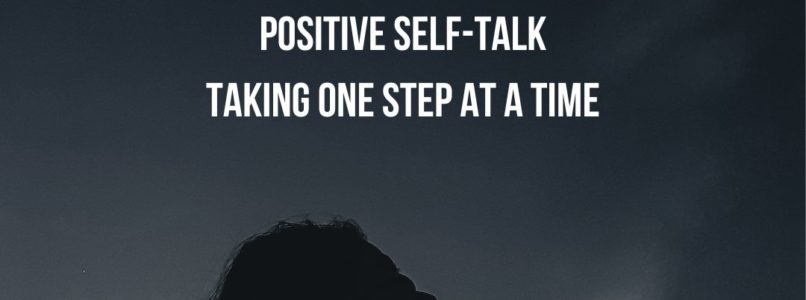

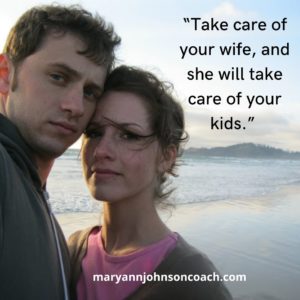 As I said last week, in 2011 I asked a few fathers and grandfathers to share their parenting experiences. Well, one of the sweetest responses came from a yet-to-be father. Brady Houston is my son-in-law, married to my youngest daughter. At the time he wrote this they had been married just a year. Enjoy.
As I said last week, in 2011 I asked a few fathers and grandfathers to share their parenting experiences. Well, one of the sweetest responses came from a yet-to-be father. Brady Houston is my son-in-law, married to my youngest daughter. At the time he wrote this they had been married just a year. Enjoy.


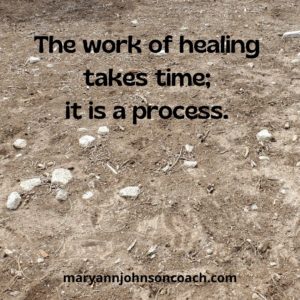 Last year, I wrote
Last year, I wrote  For many years the field next to our home, which I currently keep in order, had decades of debris on the ground and forests of weeds, grass, and sapling trees. After I cut down all the saplings and removed the weeds and grass to bare ground you could see all the cement. I gathered a bucket a day and piled it by the fence. When I had gathered what I could see I thought, “I am glad that job is done.”
For many years the field next to our home, which I currently keep in order, had decades of debris on the ground and forests of weeds, grass, and sapling trees. After I cut down all the saplings and removed the weeds and grass to bare ground you could see all the cement. I gathered a bucket a day and piled it by the fence. When I had gathered what I could see I thought, “I am glad that job is done.” surface. There is no debris, plants, or saplings to hold it under the ground. So each year I have found myself gathering up a bucket a day for a few weeks and adding the contents to the cement pile. Now, if I didn’t understand that sometimes there are layers to the work we do, I would be discouraged. But I know that what was buried will eventually surface and then I can clear it away.
surface. There is no debris, plants, or saplings to hold it under the ground. So each year I have found myself gathering up a bucket a day for a few weeks and adding the contents to the cement pile. Now, if I didn’t understand that sometimes there are layers to the work we do, I would be discouraged. But I know that what was buried will eventually surface and then I can clear it away.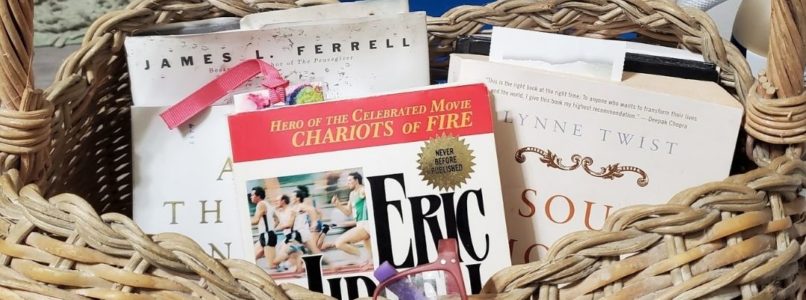
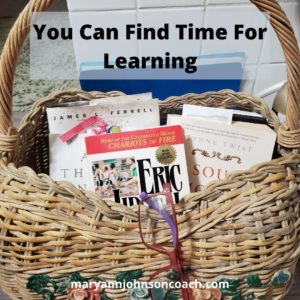 I had a mom call me in tears. She couldn’t figure out how to continue her education and still wear all the other hats that she must wear. She wanted some advice.
I had a mom call me in tears. She couldn’t figure out how to continue her education and still wear all the other hats that she must wear. She wanted some advice.
 The trip was a mixed bag, if I am honest. The kids and I had some great times, and I kept Gus worn out. : ) He had one nap and wanted another Saturday, but we were busy. This from a boy who has all but given up naps.
The trip was a mixed bag, if I am honest. The kids and I had some great times, and I kept Gus worn out. : ) He had one nap and wanted another Saturday, but we were busy. This from a boy who has all but given up naps.
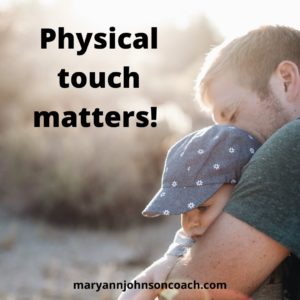 I have a friend, Ann, who has taught children with special needs for 16 years. I have been in her classroom, and she is terrific. But this year, she retired, and her kids miss her.
I have a friend, Ann, who has taught children with special needs for 16 years. I have been in her classroom, and she is terrific. But this year, she retired, and her kids miss her.
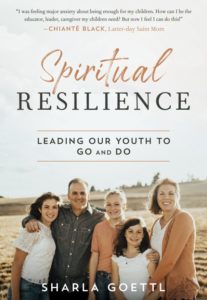 So, I am delighted to introduce you to a new book by Sharla Goettl, Spiritual Resilience: Leading our Youth to Go and Do. It is an excellent resource for any parent who is also a member of The Church of Jesus Christ of Latter-Day Saints ~ or who lives a Christ-centered life.
So, I am delighted to introduce you to a new book by Sharla Goettl, Spiritual Resilience: Leading our Youth to Go and Do. It is an excellent resource for any parent who is also a member of The Church of Jesus Christ of Latter-Day Saints ~ or who lives a Christ-centered life.
 loss difficult. His back and hip make exercising a challenge. He has been experimenting for months and finally came up with a way to move forward that he felt he could do
loss difficult. His back and hip make exercising a challenge. He has been experimenting for months and finally came up with a way to move forward that he felt he could do